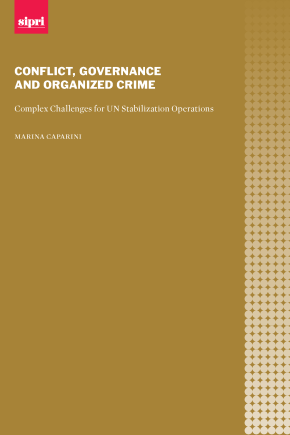Conflict, Governance and Organized Crime: Complex Challenges for UN Stabilization Operations
This SIPRI Report examines how organized crime is intertwined with armed conflict and hybrid governance systems in three states that currently host United Nations stabilization missions. It surveys the conflict/crime/governance nexus in the Central African Republic (CAR), the Democratic Republic of the Congo (DRC) and Mali, and how UN stabilization missions, in particular the UN Police, have engaged with the challenge of organized crime.
The report argues that improving how UN stabilization interventions engage with organized crime will require a frank assessment of the significance of organized crime in systems of governance and patronage, of the role of organized crime as a driver and enabler of armed conflict by non-state armed groups, and of the involvement of state-embedded actors in illicit markets. The complex links between conflict and governance actors and organized crime in the settings examined raise fundamental questions about the assumptions underlying peace operations. The report concludes with a set of recommendations on how to move to more realistic analyses and bases for peace operations.
1. Introduction
2. Armed conflict, organized crime, corruption and governance
3. Armed conflict, organized crime and stabilization in the Democratic Republic of the Congo
4. Armed conflict, organized crime and stabilization in the Central African Republic
5. Armed conflict, organized crime and stabilization in Mali
6. Comparison of the approaches to organized crime by MONUSCO MINUSCA and MINUSMA
7. Conclusions and recommendations

